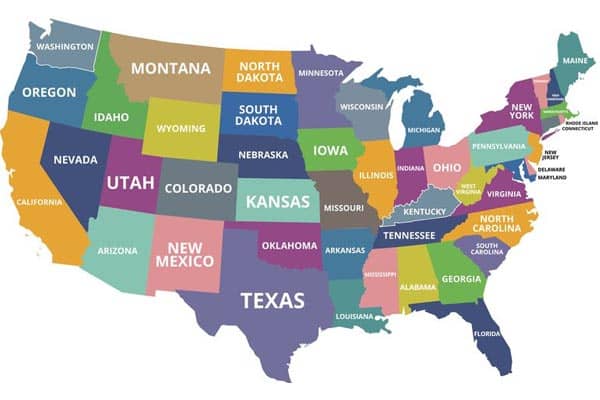CBD oil, extracted from cannabis plants, is increasingly in the news and for sale as a treatment for fibromyalgia and many other ailments.
But what is the evidence this plant-based, herbal remedy helps people with serious ailments like fibromyalgia? Is it safe to use? And what are the legalities of using CBD oil for patients and their caregivers?
What is CBD and How Is It Related to Marijuana?
CBD stands for cannabidiol, one of at least 60 chemicals known as cannabinoids uniquely occurring in cannabis plants.
Some of these chemicals have the psychoactive properties recreational marijuana is known for, but CBD and many other similar chemicals in cannabis are not psychoactive.
Yet, scientific studies and patients using cannabis-derived medical remedies report that CBD and related compounds contain remarkable properties, helping with the control of the symptoms of a wide variety of ailments, including fibromyalgia.
THC, or tetrahydrocannabinol, is a chemical with psychoactive properties known for the psychological high sought after by recreational users of marijuana.
THC has its medicinal uses, and it is often combined in small amounts with CBD where the two chemicals have a synergetic effect on each other, increasing the effectiveness of symptom relief and decreasing the probability of side-effects of one another.
While CBD and marijuana both come from the two main species of the cannabis plant, Cannabis sativa and Cannabis indica, CBD oil contains little or no THC and does not get a person high.
Hundreds of strains of cannabis have been developed by plant breeders, and each one has its unique profile of concentrations of CBD, THC, and other cannabinoid chemicals.
Many cannabis dispensaries in states where cannabis is legal provide consumers with information on the concentrations of CBD, THC, and other cannabinoids in their products.
Strains of cannabis with both CBD and THC also have medicinal properties, but depending on the level of THC, this can come with psychological effects many people do not want to experience.
Pure CBD oil is free from the psychological high of marijuana but still potent for controlling pain, improving sleep, increasing appetite, easing depression, and helping with other symptoms of fibromyalgia.
What is CBD Oil?
CBD oil is an extract made from the mature flowers and leaves of high CBD strains of marijuana by soaking the plant matter in alcohol or another solvent and then completely evaporating the solvent, leaving virtually pure CBD oil. Water can also be used for the extraction of CBD oil.
Compounds in mature cannabis plants have been used as medicine for hundreds of years.
The United States Pharmacopoeia, the official book of standards for pharmaceutical remedies funded by the US government and still in use today, listed cannabis as a remedy from 1850 to 1942.
All forms of cannabis were made illegal in 1937 at the federal level. However, many states have legalized cannabis in recent decades, making usage of CBD preparations in those states easier and legally safer.
In addition, the US Food and Drug Administration (FDA) recently approved the use of CBD products for the treatment of two varieties of epilepsy.
This is the first FDA approval for medical cannabis except for an extremely limited program in place for many decades but available to only a handful of people.
CBD oil for treatment of fibromyalgia and other conditions can be taken internally by mouth or suppository, ingested as a vapor or smoke, or applied externally as a salve or massage oil.
What Scientific Evidence Supports Using CBD for Fibromyalgia?
Several research studies have specifically looked at the effectiveness of CBD and other cannabis products for patients with fibromyalgia.
One of these is a study done by Israeli researchers G. Habib and I. Avisar published online in June 2018 under the title The Consumption of Cannabis by Fibromyalgia Patients in Israel.
In this study, participants were found through online fibromyalgia forums and support groups and surveyed their fibromyalgia symptoms and cannabis usage.
They were also asked about cannabis dependency, driving and cannabis usage, and personal demographic information such as age, gender, income, and education levels.
Of 383 study participants, 84 percent said they regularly used cannabis for relief of their symptoms.
Of these, 94 percent reported significant improvements in pain levels, less difficulty sleeping, and an improvement in mood with only 12 percent reporting mild side effects.
Only 8 percent of these study respondents reported feeling dependent on cannabis, and almost half of the respondents used cannabis without getting a medical permit, even though these are required by law in Israel.
Unfortunately, this study did not address the specific levels of CBD present in the cannabis used by these patients.
Also, the amount of CBD in cannabis varies considerably by strain, ranging from zero percent to as much as 30 percent of the total of cannabinoids in the sample, making dosage comparisons difficult.
Researchers who have looked more closely into the effects of specific dosages of CBD on fibromyalgia symptoms say the effectiveness is likely explained by the fact that the body produces a group of neurotransmitters, the chemical messengers of the brain and nervous system, which use cannabinoid chemicals to signal nerve impulses.
This biological system is called the endocannabinoid system, and it was only recently discovered.
CBD and other cannabinoids affect the body because they interlock with the same receptor sites in the brain and nervous system as chemicals produced by the body’s endocannabinoid system.
According to Doctor Ethan Russo, who has extensively studied the medical effects of CBD, endocannabinoids and CBD restore the body to the balance of homeostasis, and in this way, this one substance can be helpful for so many different diseases, including fibromyalgia.
In this video link, Dr. Russo explains how the same people often suffer from a combination of symptoms of fibromyalgia, migraine, and irritable bowel syndrome, and that these conditions all appear to be a result of endocannabinoid deficiency in the body’s natural endocannabinoid system.
In this video, Dr. Russo gives in-depth information about the current state of scientific knowledge regarding the medical effects of CBD on a variety of diseases, including fibromyalgia, from the perspective of endocannabinoid deficiency and explains how CBD and CBD combined with small, non-psychoactive amounts of THC can help with symptoms.
Another study published in the medical literature on the use of cannabis for medical purposes reviewed all 28 clinical studies on medicinal cannabis published between 1948 and 2015.
This meta-analysis found high statistical evidence for cannabis as an effective and safe treatment of neuropathic and chronic pain as well as nausea and vomiting associated with chemotherapy and loss of appetite in wasting syndrome illnesses.
Researches and patients have found that for many people, CBD has significant anti-inflammatory properties.
This effectively blocks pain signals between the muscles and organs and the nervous system, reducing the overall experience of pain.
Some research also indicates that CBD is more effective when combined with small amounts of THC.
THC appears to have its healing properties, however, many people find it causes anxiety, elevates heart rate, and has psychological effects they find unpleasant.
When taken together with significant levels of CBD, however, these adverse symptoms of THC are reduced.
Researches have also noted that not all people respond in the same way to CBD treatment, as is the case for any other pharmaceuticals.
How is CBD Oil Used by Fibromyalgia Patients
People who are thinking of using CBD for the treatment of fibromyalgia should always discuss this option with their doctor before starting treatment.
Because CBD affects people differently, it is best to start treatment at a low dose and then increase the amount gradually while paying close attention to how treatment affects symptoms and whether or not any side effects appear.
Discontinue CBD use immediately if you experience any adverse reactions.
A small percentage of patients using CBD experience some of these side effects:
- Dry mouth
- Dizziness
- Sleepiness
- Nausea
Products containing CBD oil are available commercially in US states with laws protecting medical cannabis usage or recreational usage.
In these states, many locations now have dispensaries and delivery services providing CBD-containing products to people with the correct medical or age documentation.
Other patients grow their own high CBD strains of cannabis and process the oil themselves.
However, this is a lengthy and involved process often requiring highly flammable solvents and a risk of fire. Extreme caution is advisable for anyone seeking to produce CBD oil at home.
Because medical science is only starting to research CBD oil for the treatment of fibromyalgia and other diseases, there is currently no standardized treatment.
Some dispensaries do test their cannabis products for CBD content along with the levels of other cannabinoids, including THC, and show these concentration levels on the packaging of their products.
CBD products come in different concentrations and preparations including, liquid oil, paste, capsulated oil, topical salves, sublingual sprays and drops, edible foods and candies, and vapor cartridges resembling electronic cigarettes.
CBD dosages in commercially available cannabis products usually state the number of milligrams of CBD, THC, and other cannabinoids present in one serving or dose of the product.
This can range from a low dosage of 1 milligram per serving up to several hundred milligrams per serving.
While many physicians are still reluctant to specify dosages for CBD, those with experience often suggest starting dosages at 5 milligrams per day and increasing this dosage by an additional 5 milligrams every three weeks until relief of symptoms occurs and stopping the dosage altogether at any point adverse side-effects appear.
Examples of a commonly prescribed dosage of CBD are 2.5 to 20 milligrams per day for relief of pain or eight sprays of 2.7 milligram THC combined with 2.5 milligrams of CBD in a sublingual spray taken approximately every half hour for symptoms of multiple sclerosis.
Many fibromyalgia patients and doctors treating them with cannabis preparations report that topical CBD salves and massage oils are especially effective for relieving the pain associated with this condition.
Topical CBD penetrates the skin and interacts with receptors in cells, releasing an anti-inflammatory protein that reduces pain in the surrounding nerves.
It is important to note that CBD is not a cure for fibromyalgia, and any treatment will be more effective when combined with lifestyle changes supporting better health, such as adequate sleep, exercise, and good nutrition.
In states where CBD oil is still not legal, patients must carefully weigh the benefits of using this treatment against the legal risks in their state before starting a CBD treatment plan.
What is the Legal Status of CBD Oil for Medical Use?
State and federal laws concerning the medical use of CBD oil and other cannabis-derived products are changing.
The federal government, through the FDA, recently approved the use of CBD products for two types of epilepsy, however, all other forms of cannabis, including CBD, remain illegal at the federal level.
While the US Drug Enforcement Administration (DEA) still considers CBD illegal, DEA spokesperson Rusty Payne has stated publicly that the agency is not going to prosecute people using CBD for the treatment of serious diseases.
Currently, forty-six states have some form of legalization for CBD. Seventeen of these states have specific laws regulating the amount of THC that can be present in a CBD-containing product.
Thirty-one states and U.S. territories have full legalization for the medical use of CBD. The four states where CBD products remain illegal are Idaho, Kansas, Nebraska, and South Dakota.
People who suffer from fibromyalgia and other health concerns who are considering CBD treatment should check the current cannabis laws in their state before buying or using these products.
CBD for the treatment of fibromyalgia and other diseases is increasingly protected by law.
There is no known toxic dosage for CBD and many fibromyalgia patients find it helpful.
CBD is increasingly available in standardized, easy-to-use dosages as capsules, lozenges, beverages, foods, candies, and sublingual sprays.



